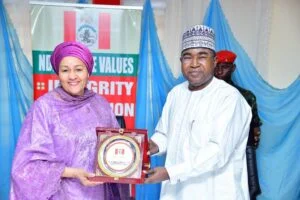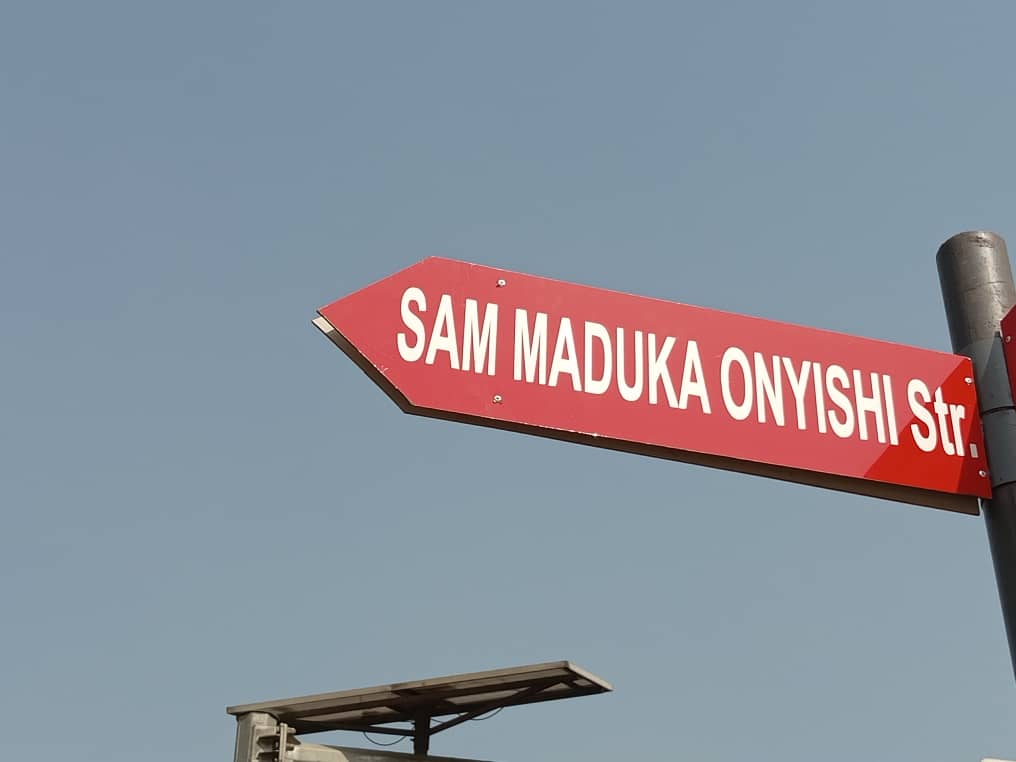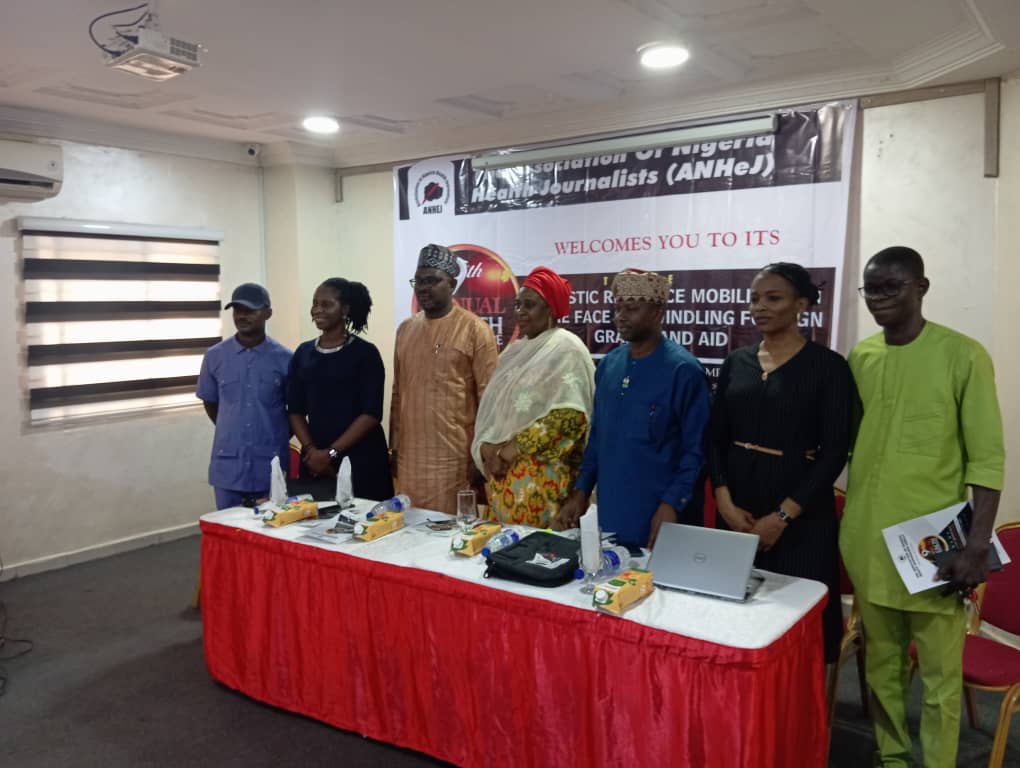NEWS
NDLEA Arrests 48,157 Drug Traffickers in 3 Years – Marwa

The National Drug Law Enforcement Agency (NDLEA) arrested no fewer than 48,157 persons for drug-related offences between 2021 and 2023, its chairman retired Brig.-Gen. Mohamed Marwa, said on Monday in Abuja.
Spokesman for the agency, Mr Femi Babafemi, stated that Marwa made the declaration while receiving the UN Deputy Secretary-General, Mrs Amina Mohammed, who paid him a courtesy visit.
Marwa said those arrested included 46 drug barons.
He added that 8,350 of those arrested had been successfully prosecuted and convicted.
The chairman noted that 7,500 tons of illicit drugs were seized from the suspects, adding that 1,057 hectares of Indian hemp farms were destroyed in forests in different parts of the country.
Marwa appreciated Mohammed for the visit, pointing out that it was the first in history by the highest echelon of the United Nations.
The NDLEA chairman requested Mohammed to use her good offices and the huge platform of the UN to facilitate the work of the anti-narcotics agency.
“Please use your office to conduct another drug use survey that will give the NDLEA a better rating and move it up from its rating at the last survey six years ago.
“We want procurement of mechanical tools to destroy Indian hemp farms as against the current manual system.
“We need incinerators to destroy tons of illicit drugs seized as against the current open air burning which is not good for the environment and for public health.
“We also need support for our Alternative Development programme and modern forensic equipment at our old and new laboratories,’’ he said.
Mohammed was accompanied on the visit by the UN Resident Coordinator in Nigeria, Mr Mohamed Fall.
Earlier, Mohammed assured of UN’s support in the war against substance abuse and illicit drugs trafficking in Nigeria.
She said the UN was willing to enhance the impact of significant efforts already made by the NDLEA.
“On behalf of the UN Resident Coordinator in Nigeria, we want to reconfirm our support from the United Nations to the work of the NDLEA.
“I see the NDLEA as an agency that wants to do the job and to succeed. This is a challenge and we will be here to support,’’ she assured.
The UN Chief commended Marwa for providing NDLEA with exemplary leadership. (NAN)
NEWS
Street Named After Business Mogul, Sam Maduka Onyishi Unveiled in Asokoro

By David Torough, Abuja
Authorities in the Federal Capital Territory on Saturday honoured renowned entrepreneur and philanthropist, Chief Dr. Sam Maduka Onyishi, with the unveiling of a street named after him in Asokoro, Abuja.
Speaking at the event, the representative of the Abuja Metropolitan Management Council’s Department of Street Naming, Mr.
Charles Adikwu, said the honour was in recognition of Onyishi’s remarkable contributions to national development, job creation, and community upliftment.Adikwu described the Peace Mass Transit founder as “a businessman who built his enterprises from scratch to the top,” noting that Onyishi has grown into one of Nigeria’s most influential private-sector employers.
The honouree is the Chairman of Globus Bank, Peace Microfinance Bank, Peace Oil & Gas, Peace Mass Transit, and the Chancellor of Sam Maduka University, Akwegbo, Enugu. According to Adikwu, Onyishi’s businesses have collectively provided employment to over 150,000 Nigerians, making him “one of the highest employers of labour in the country.”
Adikwu added that naming streets after distinguished Nigerians also enhances security and navigation within Abuja communities.
“If anything happens along this route, it can now be easily identified as taking place at No. 7 Sam Maduka Onyishi Street,” he said. “Before now, locating places involved unnecessary descriptions that sometimes complicated emergency responses.”
Also speaking, the Regional Manager of Peace Mass Transit (Northern Region), Mr. Ngwu Jude Chinweike, said the gesture reflects government’s increasing willingness to recognise individuals who positively impact society.
He expressed delight that his principal was among those honoured, describing the development as a morale boost for communities and a reminder that meaningful contributions do not go unnoticed.
“The public will now understand that when you make positive impact in your community, government has a way of recognising your efforts,” he said.
Chinweike noted that the newly named street is already attracting interest from businesses and institutions, including security agencies, and assured that Peace Mass Transit and Onyishi’s other subsidiaries would support efforts to enhance the area’s outlook.
“Since the street bears his name, we will keep our eyes here and contribute to ensuring it looks good,” he added.
Chief Dr. Sam Maduka Onyishi, widely regarded for his philanthropy and transformative investment footprint, continues to maintain an active presence in transportation, finance, energy, and education sectors across the country.
NEWS
Experts Task Government on Increase in Domestic Funding

By Laide Akinboade, Abuja
Experts in the health sector, at the weekend agreed that even though foreign grants and aid remain highly valuable, it is imperative for the three tiers of government to increase domestic funding in Nigeria.
They agreed that it is only through the above the nation can build a resilient, domestically financed health system.
This was agreed at the 9th annual health conference organized by the Association of Nigeria Health Journalists (ANHeJ) in Abuja.
The theme of this year conference is ‘Domestic Resource Mobilization in the Face of Dwindling Foreign Grants and Aids’ .
Among those who spoke at the occasion, include, Special Adviser to President on Health, Dr.
Salma Ibrahim Anas, .Minister of State for Health and Social Welfare, Dr. Kunle Salako, representative from National Agency for Food and Drug Administration and Control, (NAFDAC), Dr. Matins Illuyomade,Salako who was represented by his Special Adviser, Dr. Babatunde Akinyemi, said Nigeria has benefited from substantial foreign health assistance, including over $6 billion from PEPFAR, $2.5 billion from the Global Fund, $1.5 billion from the World Bank, $1.2 billion from Gavi, and $1.6 billion from the Bill & Melinda Gates Foundation.
He stressed, that government initiatives under the Renewed Hope Agenda and the Nigeria Health Sector Renewal Investment Initiative (NHSRII), including the Basic Health Care Provision Fund (BHCPF), which has disbursed over N260 billion to states and the Federal Capital Territory since 2018, and the National Health Insurance Authority (NHIA) Act, mandating health insurance for all Nigerians.
He said, “The United States government, through PEPFAR, has invested over $6 billion in Nigeria’s HIV/AIDS response since 2004, with annual allocations averaging $400-450 million in recent years. In fiscal year 2023 alone, USAID (Now DoS) allocated approximately $535 million for health programs in Nigeria, covering HIV/AIDS, malaria, tuberculosis, and maternal and child health initiatives.
“The Global Fund to Fight AIDS, Tuberculosis, and Malaria has disbursed over $2.5 billion to Nigeria since 2003, making us one of the largest recipients globally. The World Bank currently supports our health sector with approximately $1.5 billion through various projects, including the $500 million Nigeria COVID-19 Action Recovery and Economic Stimulus Program and the $820 million International Development Association credit for primary healthcare strengthening. Similarly, Gavi, the Vaccine Alliance, has committed over $1.2 billion to Nigeria since 2001 for immunization programs, while the Bill and Melinda Gates Foundation has invested approximately $1.6 billion across various health interventions in Nigeria over the past two decades.
“The United Kingdom’s Foreign, Commonwealth and Development Office (FCDO), though reducing its overall aid budget, continues to invest significantly in Nigeria’s health system, particularly through the £210 million Health Systems Strengthening program. The European Union and its member states collectively provide approximately €100 million annually for health-related interventions, while the Government of Japan, through JICA, supports our health infrastructure development with grants averaging $30 million annually.
.Multilateral development banks and financial instruments have also remained vital partners; the World Bank in 2024 approved substantial concessional financing, including a major credit and complementary grant financing package that supports health outcomes and health system resilience across states and communities. Such financing is targeted not only at service delivery but at strengthening our ability to prevent, detect, and respond to emergencies”.
Salako noted, “Foreign grants and aid remain highly valuable and will continue to finance critical interventions for some time. But the future we must build is one where domestic resource mobilization, fiscal discipline, efficient spending, and innovative financing are the engines that sustain our national health priorities. The Government of Nigeria is already advancing legal and budgetary instruments, leaning on proven programme data, and working with partners to protect gains while we scale domestic financing.
“Our commitment is to ensure that no Nigerian is left behind during this transition, and that we convert a period of funding volatility into a long-term opportunity to build a resilient, domestically financed health system”.
The Minister of state also enumerated the innovative domestic financing efforts at the state and private sector levels.
“Lagos State allocates over 12% of its budget to health, Kaduna State’s contributory health scheme has enrolled 1.6 million residents, and Abia State has launched a diaspora health investment fund.
“The Private Sector Health Alliance of Nigeria and the Nigeria Sovereign Investment Authority contributed over N50 billion and $200 million, respectively, to health initiatives,” he said.
Dr. Salma, in her presentation, said, donor fatigue is real, and the inevitable graduation of Nigeria from various aid programs is approaching.
In his welcome address, ANHeJ President, Joseph Kadiri, said the conference theme, “Domestic Resource Mobilisation in the Face of Dwindling Foreign Grants and Aid,” underscores the urgent need to strengthen domestic financing, partnerships, and resilient health institutions.
Kadiri called on journalists to track government commitments, highlight gaps, and amplify the realities faced by Nigerian families.
NEWS
Bayelsa Urges NDDC to Complete Abandoned Akenfa Bridge Project

From Mike Tayese, Yenagoa
The Bayelsa State Government has called on the Niger Delta Development Commission (NDDC) to resume and complete the long abandoned Bridge Project in Akenfa Community, a suburb of the state capital city, Yenagoa
The Deputy Governor, Sen.
Lawrence Ewhrudjakpo, made the call while presiding over an enlarged meeting with representatives of the NDDC, community leaders of Akenfa Community and relevant government officials at his office in Government House, Yenagoa, on Thursday.The Deputy Governor has clarified that, although the state government decided to take over some neglected NDDC projects in the state, including the Polaku-Sabagreia Bridge, that of Akenfa was reverted back to the interventionist federal agency after a mutual discussion between the two parties.
Describing the Akenfa link-Bridge project as strategic and critical to pedestrians and vehicular movements in the oil-producing community, Senator Ewhrudjakpo informed that government officially communicated the re-handing over of the project to NDDC in a letter dated 10th March, 2025.
He empathized with the Akenfa community over the delay in the execution of the project, and urged the NDDC to expedite the process of completing it with a view to putting an end to commuting challenges facing the people.
His words: “The project has actually been sent back to the NDDC to handle. But the NDDC seems to be far away from the Akenfa Community. So they find it easier to come to us.
“We believe that the project has gone a long way. What is required to complete it may not be as much as what has gone in there.
“So, we felt that we should hàve this tripartite interaction to let the community know officially that the project is now in the hands of NDDC, and also to let the agency know that our community is agitated considering the long history of that project.”
Responding on behalf of the NDDC, the Bayelsa representative, Senator Deinyabofa Dimaro, said the Commission would review the entire project and have it captured in its 2026 budget for seamless execution.
Senator Dimaro, who promised to properly relate the issue to the Managing Director of the NDDC, Dr. Samuel Ogbuku, however, requested relevant documents from the State Government regarding the reversion of the project back to the NDDC.
Representatives of Akenfa Community who spoke at the meeting included, former Chief of Staff Government House, Yenagoa, Chief Dikivie Ikiogha, and a one-time paramount ruler of the community, Chief Isiya Albert.
Meanwhile, Senator Lawrence Ewhrudjakpo, has on behalf of the Governor constituted a tripartite contact committee involving the government, the NDDC and the Akenfa community to ensure the resumption and completion of the stalled Akenfa Bridge project.
Members of the committee include the state NDDC representative, Senator Deinyabofa Dimaro; the Commissioner for Special Duties (Central), Mandy Akpallo; and Chief Dikivie Ikiogha.
Others are the Technical Adviser to the Governor on NDDC Matters, Kuro Nyenye; Chief Isiya Albert; Secretary to the Akenfa Community, Wilson Mumeya, the Youth President, Moses Izibekiebo, as well as an engineer to be nominated by the Ministry of Works and Infrastructure.


















